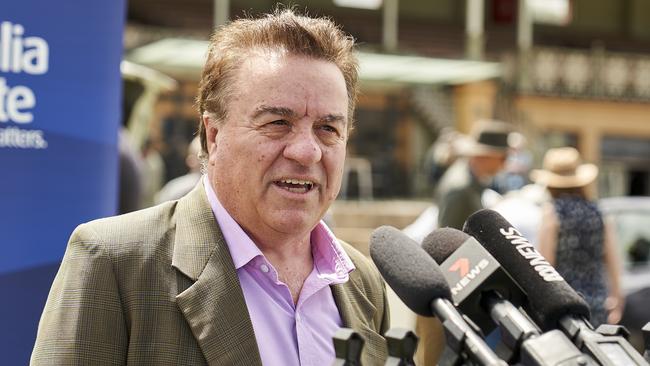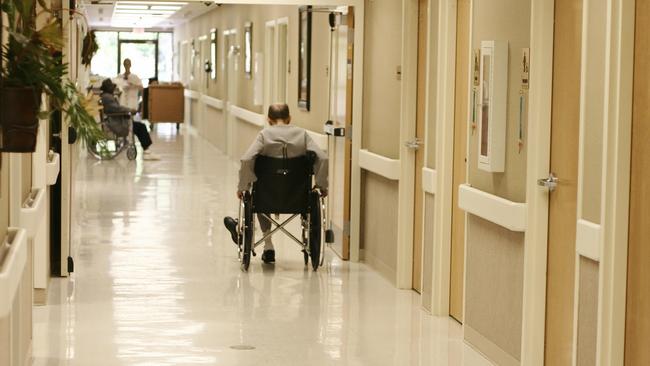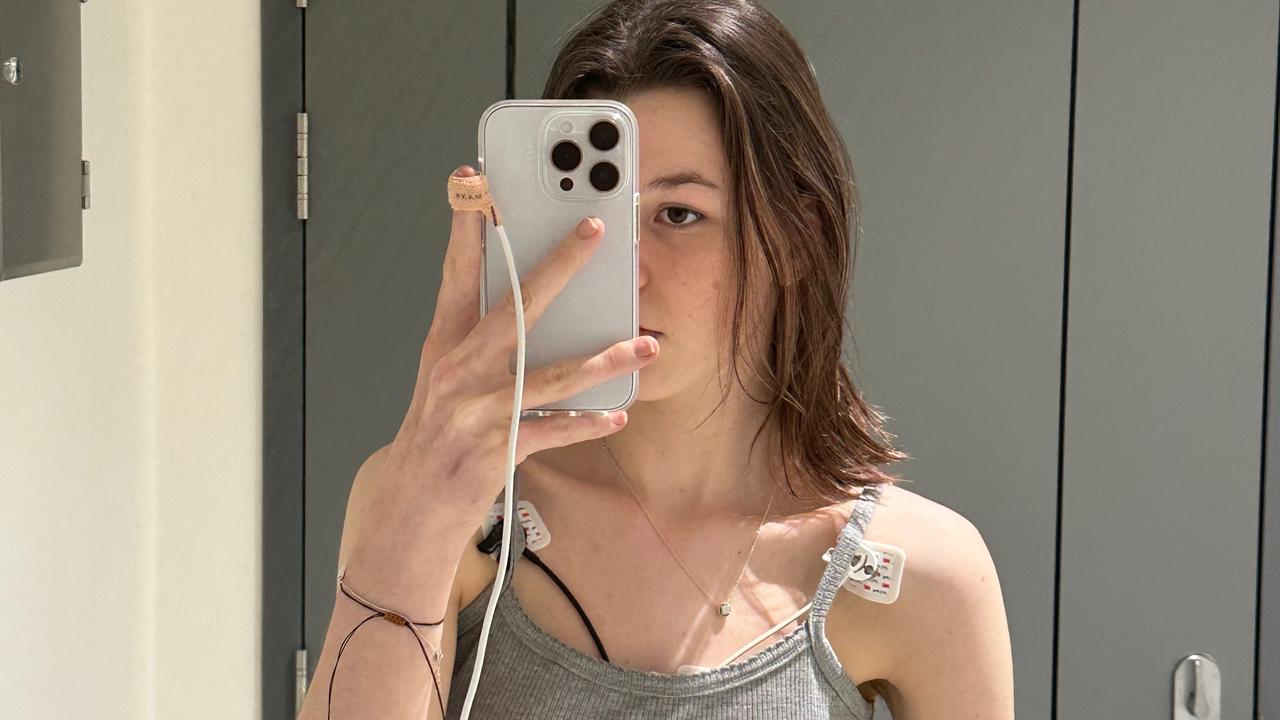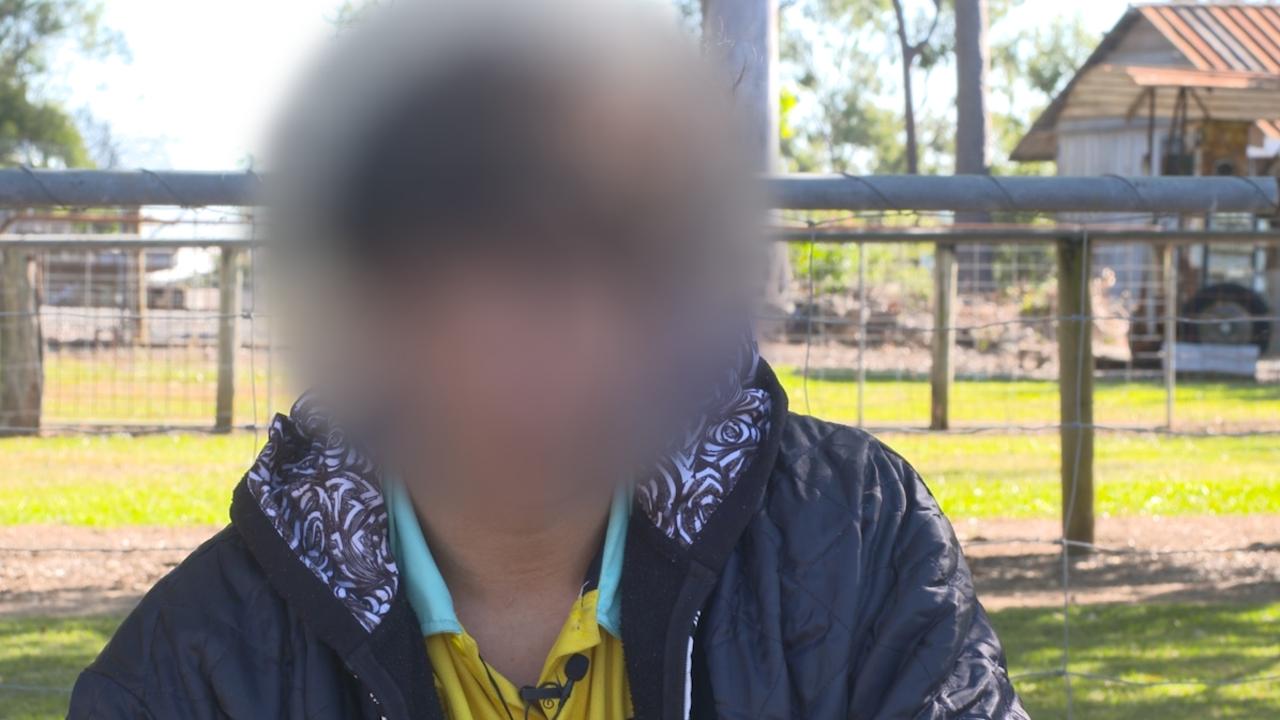Isolated, lonely, confused – Covid’s cruel legacy in aged care homes
Aged care residents being kept in confinement for their own safety as 95 SA nursing homes battle Covid outbreaks. A prominent MP calls it a cruel form of elder abuse.
Coronavirus
Don't miss out on the headlines from Coronavirus. Followed categories will be added to My News.
Aged-care homes with Covid outbreaks are facing calls to allow visitors under strict protocols, as advocates warn the state faces a mental health crisis hidden behind closed doors with residents are confined to their rooms.
Outbreaks have hit dozens of homes in South Australia resulting in lockdown orders – some now for weeks – as staff and residents are tested, homes are cleaned and officials fight to contain the virus.
With no visitors and no daily exercises or activities, no outings, no socialising with other residents, no walking in sunshine, not being able to go out for shopping, hair cuts, or doctors appointments, the lockdowns are taking a physical as well as mental toll.
South Australia now has at least 95 homes with outbreaks and 872 cases roughly divided equally between residents and staff.
SA-Best MLC Frank Pangallo said he had been contacted by numerous distressed family members unable to visit their loved ones, some since before Christmas.
“It is causing enormous anguish among the residents who can no longer see family members and who were reliant on them for additional personal care,” he said.
“They’re extremely worried about the mental wellbeing of their loved ones and some fear they may not be able to visit them at all before they pass away. What we are now seeing is cruel and, in my view, a form of elderly abuse.”

He called for consistent requirements allowing visits to Covid-affected facilities including mandatory wearing of personal protective equipment and proof of double vaccination.
He also called for free, government-supplied rapid antigen tests to be supplied and taken on arrival.
Under questioning from Mr Pangallo, the state’s chief public health officer Nicola Spurrier this week told a parliamentary committee: “Our expectation is that there will probably be an outbreak in just about all the aged-care facilities.”
Prof Spurrier revealed there had not been any directive from SA Health to prevent face-to-face visits.
“On a case-by-case basis, they may be needing to restrict visitor access,” she said.
“It’s obviously a difficult line to draw between keeping residents safe and also allowing visitors.
“There’s a limitation on the number of visitors, but it’s certainly not a ban. Aged-care facilities sit under the commonwealth jurisdiction and different aged-care facilities will make their own policy decisions.”

National Seniors chief advocate Ian Henschke said it was difficult to work out “where the line between safety and suffering begins and ends” for residents confined to their rooms indefinitely.
He noted outbreaks interstate earlier in the pandemic had seen hundreds of deaths which underlined the need for caution, but observed the situation had changed with the increase in double vaccination rates and boosters.
Mr Henschke said the mental health issue of elderly people confined to their rooms was a growing concern.
“It is very important people have social contact, it is vital for their wellbeing. When people have regular contact with family and friends it even affects their blood pressure, reduces anxiety, so has a physical as well as mental health effect,” he said.
“The idea of confining someone to their room for weeks on end is damaging to physical as well as mental health so I hope people are considering this very carefully.”
Mr Henschke urged families to stay in touch with loved ones under confinement orders including using video links such as Facetime, but added some residents do not have family or social contacts beyond the staff and fellow residents.
SA Health’s guidelines for management of Covid outbreaks in residential aged care facilities (RACF) state: “Visits for compassionate reasons will be considered on a case-by-case basis by RACF.”
However, individual operators are able to enforce their own policies.
Mr Henschke noted that nationally, aged care occupancy rates had fallen by almost 10 per cent since the pandemic hit.
He said many families, particularly in Melbourne and Sydney which endured long lockdowns, now see aged care homes as “a last resort” and are working to keep loved ones at home with support.
“People don’t want to risk putting their loved ones in care then suddenly being cut off from them,” Mr Henschke said.
National Seniors continues to work on policies, including for federal election lobbying, to make home care affordable.
Aged and Community Services Australia chief executive Paul Sadler it was important to strike a balance between infection control and prevention, and the rights of older people to see visitors and move around freely.
“There will be instances where it’s sensible for lockdowns to be in place but they are being used almost on a preventative basis, and we think that’s an over-reaction because this is a person’s home,” he said.
Leading Age Services Australia general manager of policy, advocacy and advisory, Tim Hicks, called for a nuanced, risk-based approach to decisions about restriction of movement.
However, Mr Hicks said better advice and guidance was needed on current levels of risk within homes, taking into account factors such as high vaccination and booster rates.
“Having more freedom is important, but we need a bit more evidence to make those risk-based decisions,” he said.
Premier Steven Marshall sympathised with families caught in lockdowns but said his primary concern was to keep aged-care residents safe.




